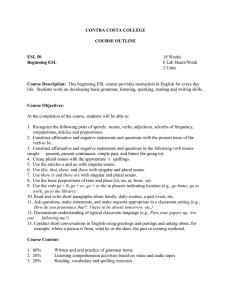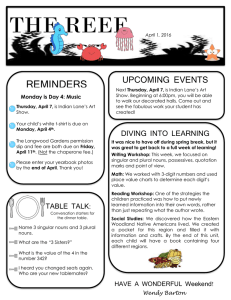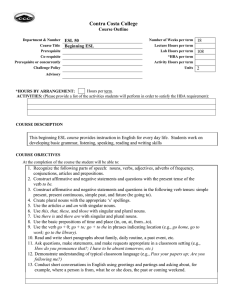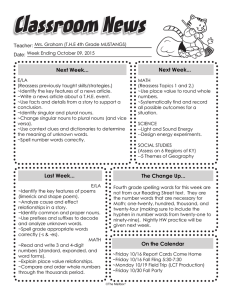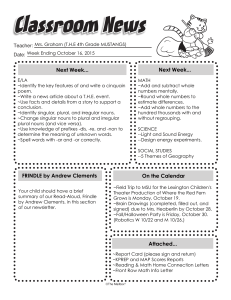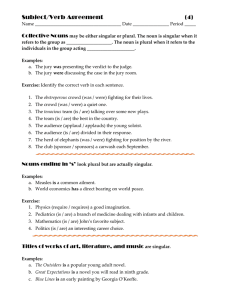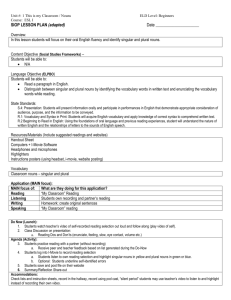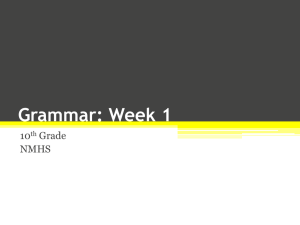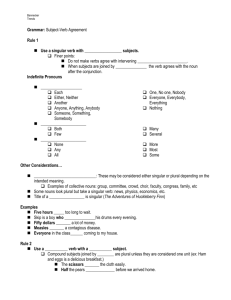ESL-50 sample syllabus
advertisement
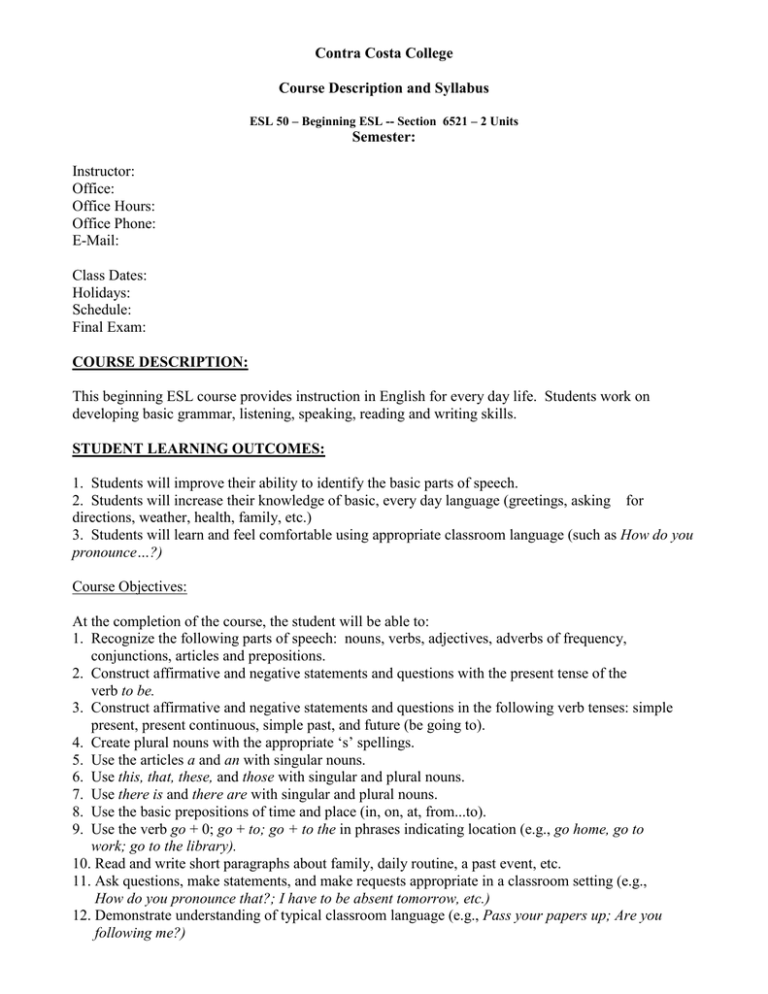
Contra Costa College Course Description and Syllabus ESL 50 – Beginning ESL -- Section 6521 – 2 Units Semester: Instructor: Office: Office Hours: Office Phone: E-Mail: Class Dates: Holidays: Schedule: Final Exam: COURSE DESCRIPTION: This beginning ESL course provides instruction in English for every day life. Students work on developing basic grammar, listening, speaking, reading and writing skills. STUDENT LEARNING OUTCOMES: 1. Students will improve their ability to identify the basic parts of speech. 2. Students will increase their knowledge of basic, every day language (greetings, asking for directions, weather, health, family, etc.) 3. Students will learn and feel comfortable using appropriate classroom language (such as How do you pronounce…?) Course Objectives: At the completion of the course, the student will be able to: 1. Recognize the following parts of speech: nouns, verbs, adjectives, adverbs of frequency, conjunctions, articles and prepositions. 2. Construct affirmative and negative statements and questions with the present tense of the verb to be. 3. Construct affirmative and negative statements and questions in the following verb tenses: simple present, present continuous, simple past, and future (be going to). 4. Create plural nouns with the appropriate ‘s’ spellings. 5. Use the articles a and an with singular nouns. 6. Use this, that, these, and those with singular and plural nouns. 7. Use there is and there are with singular and plural nouns. 8. Use the basic prepositions of time and place (in, on, at, from...to). 9. Use the verb go + 0; go + to; go + to the in phrases indicating location (e.g., go home, go to work; go to the library). 10. Read and write short paragraphs about family, daily routine, a past event, etc. 11. Ask questions, make statements, and make requests appropriate in a classroom setting (e.g., How do you pronounce that?; I have to be absent tomorrow, etc.) 12. Demonstrate understanding of typical classroom language (e.g., Pass your papers up; Are you following me?) 13. Conduct short conversations in English using greetings and partings and asking about, for example, where a person is from, what he or she does, the past or coming weekend. METHODS OF INSTRUCTION: 1. 2. 3. 4. Lecture Text exercises with associated audio and videotapes Pair and small group work Individual conferences TEXTBOOK AND SUPPLIES: 1. 2. The New Grammar in Action, Book 1 The New Grammar in Action, GrammarWork 1 Dictionary GRADES AND ASSIGNMENTS: 1. Tests and quizzes 2. Homework 3. Final Exam 60% 20 % 20% 70% and above = Credit Below 70% = No Credit Course expectations: [Optional – can be modified] Attendance I expect you to attend every class meeting. Good attendance is very important. If you miss class, you won’t learn much. If you have to miss class, you still have to do the homework. Check the course website or contact me or a classmate to find out what the homework is. You must attend every class meeting and arrive on time. If you are absent more than three times, I may drop you from the class. If you arrive late or leave early, I will add up the time you are not in class and count it as time you are absent. Homework You will have homework for every class meeting. You will have about eight hours of homework every week for this class. There will be unannounced homework quizzes often. Class etiquette The way students behave in a class makes a big difference in how much we can all learn. For that reason, you are expected to behave in ways that help you and others learn the most. That includes: coming to class on time and finishing all your homework before class, turning off your cell phone ringer before the beginning of class, never using your phone to send or receive texts, to make calls, or to check messages never leaving the class to talk on the phone, smoke a cigarette, or take a break, participating actively in group and classwork, and helping everyone participate, treating everyone with respect and kindness.
